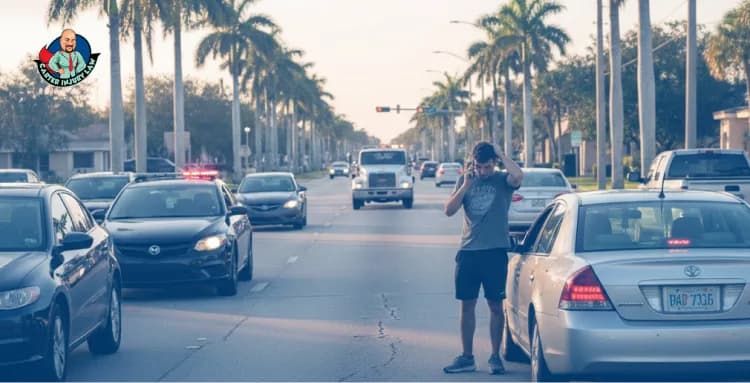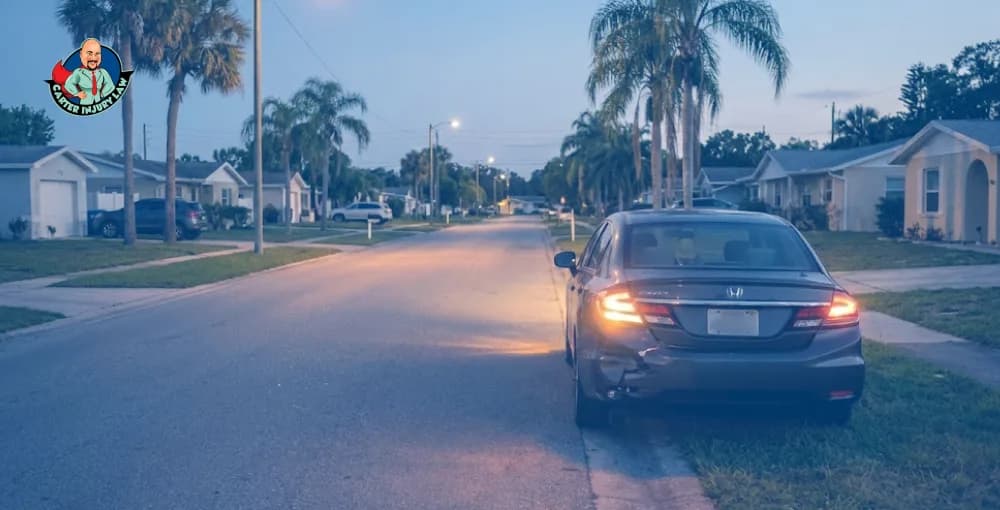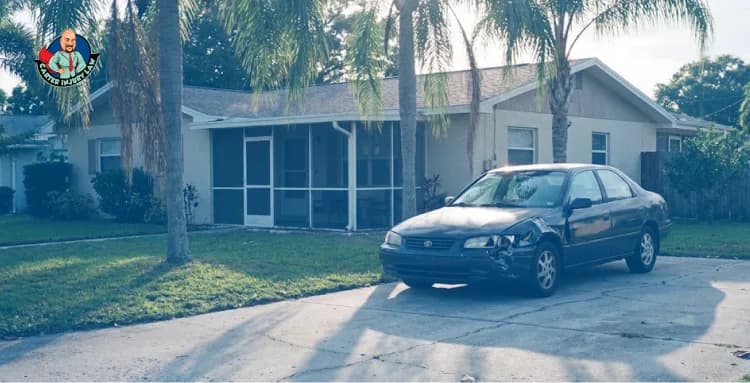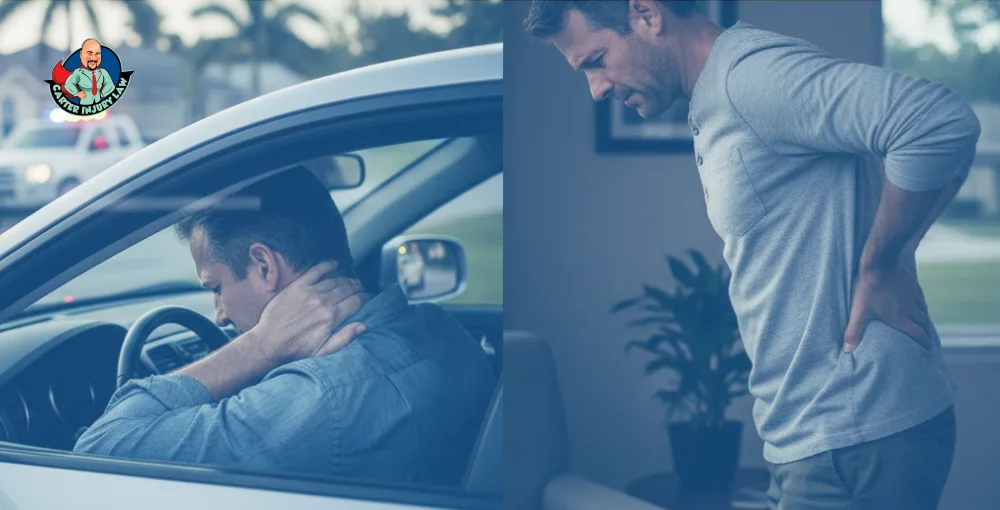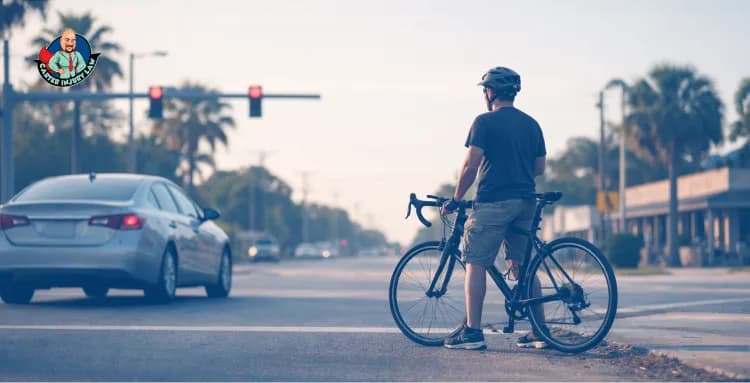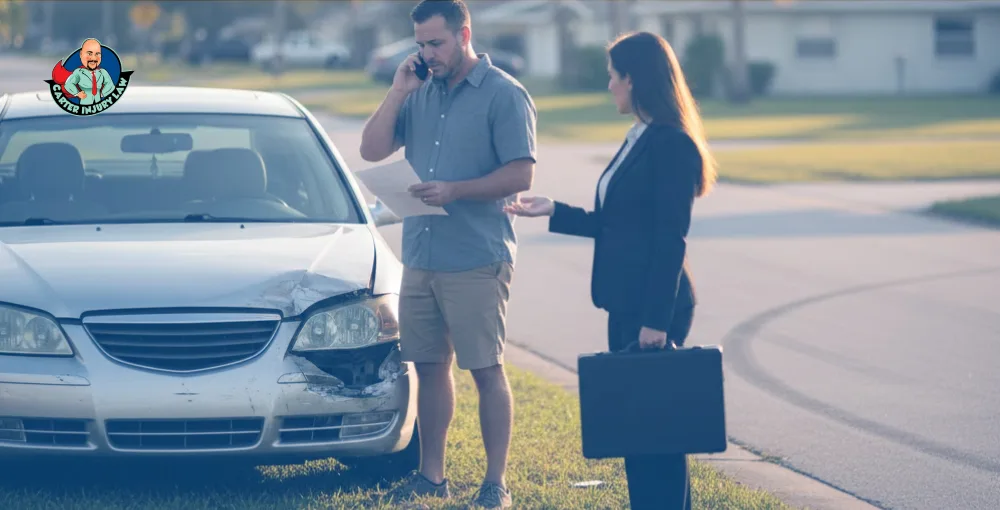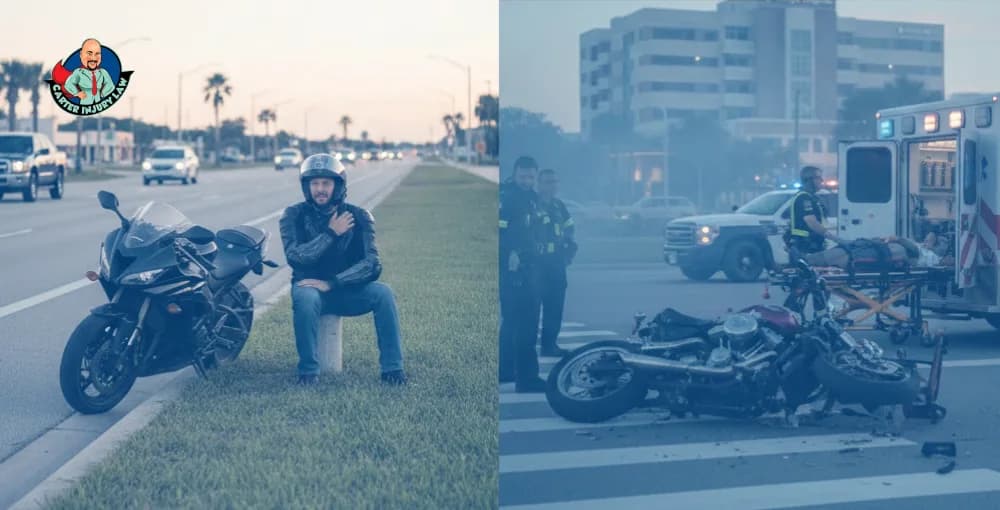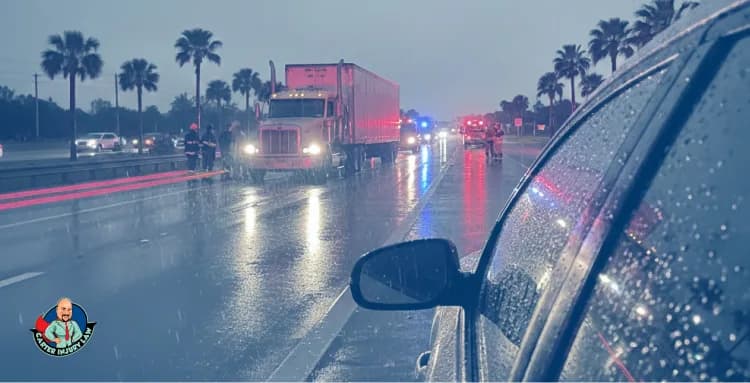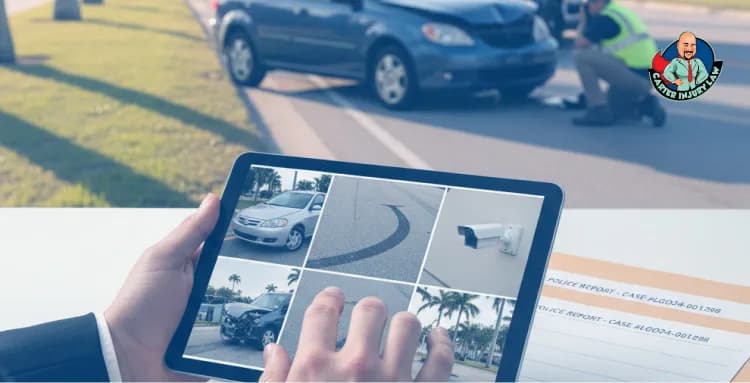After an accident, a lot of people think the insurance company is watching them right away. Like someone’s already out there with a camera as soon as the claim is filed. That’s usually not how it works.
Surveillance doesn’t happen in every case. It costs money, and most companies won’t spend that unless they believe your case could cost them a lot more. If you’re asking for a higher settlement or you’ve filed a lawsuit, that’s when the red flags go up for them.
And when they do decide to watch, they don’t always make it obvious. Let’s talk about that…
1) The Classic Kind of Surveillance: The Van on Your Street
When people think about being followed after a personal injury, they picture someone sitting in a van, holding a camera, waiting for that one moment they can use against you. And honestly, that’s not far from reality.
Surveillance like this is usually done by private investigators. They blend in. Their cars don’t have logos. Their cameras are discreet. And they’re not there by accident. They’ve been hired to watch and wait.
However, this kind of effort doesn’t happen right away. It usually starts once a lawsuit is filed and the claim looks like it’s going to cost the insurance company real money. Before that, most of them don’t want to spend the resources.
Legally, they can record you in public spaces. If you’re walking through a parking lot or sitting at a park, that’s fair game. However, there are lines. They can’t peek into your windows. They can’t film you inside your house or in private areas where you’d reasonably expect privacy. Those boundaries matter.
Claims Journal reported that private investigators are used in about 1 in 5 litigated personal injury cases, especially when claims go beyond $50,000. It’s not routine, but it’s common enough to take seriously.
Still, the camera outside isn’t always the biggest concern. These days, the real risk often starts with something most of us use every single day.
2) What Can Go Wrong ?
Let’s say you tell the insurance company you can’t lift anything. You’re in pain, and you’re not exaggerating. But a few days later, you roll your garbage can down the driveway. It’s part of your routine. Doesn’t seem like a big deal. Except someone’s filming and now they’ve got you on video doing the one thing you said you couldn’t.
That’s where the real damage happens.
It’s not about whether you took the trash out. It’s about whether your words match your actions. Juries don’t expect perfection. They expect honesty. And if something you said under oath doesn’t line up with what ends up on camera, the case can start to slip.
According to the Insurance Research Council, surveillance footage leads to a lower payout in 15 to 20 percent of disputed injury claims.
That’s why being accurate matters more than sounding limited. And while in-person surveillance can cause these problems, it’s nothing compared to what can come from something as small as a social media post.
3) Social Media Surveillance is The Real Risk
These days, the camera doesn’t have to be in a van. It’s already in your pocket. Social media has become one of the easiest ways for insurance companies to gather information, and they don’t need a private investigator to do it.
Even if your profile is set to private, that doesn’t mean it’s off-limits in a legal case. Courts have allowed access to private posts, photos, comments, and even messages, depending on the situation. If a judge thinks the content might be relevant to your injury or credibility, they can order you to hand it over.
That’s what makes social media so risky. You don’t have to post something dramatic. Even a picture of you smiling at a friend’s barbecue could be used to question how you’re feeling or what you’re capable of. It doesn’t take much to shift the tone of a case.
And while you can’t always control who’s watching, you can control what you post or whether you post at all… Here’s David Carter with a quick explanation of what’s at stake and what not to post.
4) What to Do with Your Social Media While Your Case Is Active
When it comes to social media during an injury case, the best move is simple: pull back.
Option one is to deactivate your accounts. Not forever, just while the case is active. It’s the cleanest option. No posts, no pictures, no chance something gets taken out of context. It also removes the temptation to scroll and share like nothing happened.
Option two is to stay quiet. Keep your profile, but use it just to browse. Don’t post anything, don’t comment, and definitely don’t let anyone tag you in photos. Most platforms have settings to turn tagging off.
Option three is for the ones who absolutely have to stay visible. Maybe you run a business online, or maybe social media is part of your income. If that’s the case, only post neutral content. No pictures of yourself, no updates about your health, and nothing that could be twisted into an argument against your injury.
The Journal of Legal Technology Risk reported that people who post during an open injury case are three times more likely to end up under surveillance. Not because they’re doing something wrong, but because the posts attract attention.
And once the defense is looking, they won’t stop at Facebook or Instagram. They’ll dig through everything. Which brings us to the next thing you should be ready for…
5) What You Say in a Deposition Matters More Than You Think
A deposition is where your words start to shape the case. And once you’ve said something under oath, it sticks. If you tell them you can’t lift anything, and then later there’s footage of you unloading groceries or moving a chair, that becomes a problem.
That’s what they’re really looking for. Contradictions. Not signs that you’re completely healed or back to full strength. Just enough inconsistency to create doubt in front of a jury.
According to Law360’s Litigation Trends Report, in 1 out of 4 injury cases involving surveillance, the footage is used to challenge testimony, not to disprove the injury itself. It's about trust. And once a jury starts questioning that, the rest of the case can get shaky.
Which is why staying consistent is part of your strategy. The next step? Knowing what to expect when the insurance company plans to use surveillance against you.
6) The Exhibit List: When You’ll Know They’ve Got Footage
You won’t always be left wondering. If the defense has surveillance footage they plan to use, they’re required to disclose it. It usually shows up in what’s called an exhibit list—a document that outlines what evidence they intend to bring to mediation or trial.
Here’s the key difference: at mediation, they don’t have to share everything upfront. It’s more flexible. But when trial gets closer, the rules tighten. If they want to use that footage in court, they have to show their hand.
That’s where Carter Injury Law pays extra attention. We review every exhibit list the moment it’s filed. If there’s video evidence listed, we dig in, prepare, and make sure it doesn’t catch anyone off guard. Being proactive makes all the difference when you're walking into a negotiation or courtroom.
So if it’s listed, we’ll know. And we’ll be ready. Next, let’s talk about what kind of footage actually changes a case and what doesn’t.
7) When Surveillance Crosses a Line: Know Your Privacy Rights
There’s a difference between watching and crossing a line. Insurance companies are allowed to observe what happens on sidewalks, in parking lots, or at the grocery store. That part is legal. However, they can’t peer through your windows, trespass onto private property, or install hidden devices near your home.
The legal boundary is simple: if you're in a place where the general public has access, surveillance is usually fair game. The moment it enters your fenced backyard, your phone, your home office, the protections begin to apply.
Still, those lines can blur, especially when you don’t have someone watching out for you. Having an attorney early on means having someone who understands where the boundaries are and how to act if they’re pushed.
And that brings us to your honesty, your story, and how you carry that forward in your case. Let’s close by talking about what juries actually care about when all is said and done.
8) Don’t Panic, Just Be Honest and Get Advice Early
Surveillance isn’t some secret trap set to catch you being human. It’s a tool. And like most tools in injury litigation, it’s less about the act and more about the story that follows.
That’s why early legal guidance can go a long way. If you’re unsure whether a post is safe, if a message from an adjuster feels a little too casual, or if someone starts asking questions that make your stomach twist, talk to us.
Carter Injury Law offers free, confidential consultations. You don’t need to have a case file in hand or a strategy mapped out. Even if you’re just wondering what to post, we’re here to help you protect your story before someone else tries to rewrite it.



